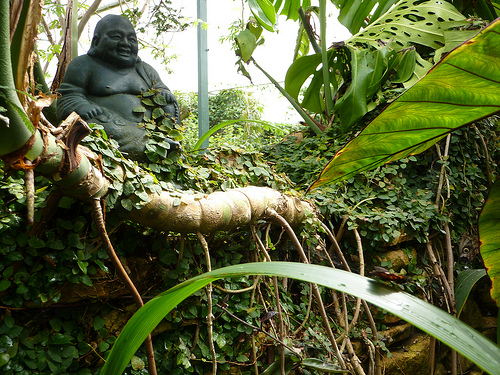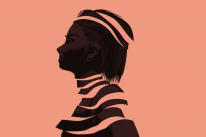
“It’s not who you are that holds you back; it’s who you think you’re not.” -Unknown
I know this may seem obvious, but I recently realized I have the most confidence in the things that I do most frequently.
For example, I write every day—and I have a lot of confidence in my ability to help people through my words. I identify myself as a writer, which goes a long way in motivating me to do this consistently and passionately.
I feel less confident when it comes to the business side of things—negotiating the contract for my next book, for example. I frequently reinforce to myself that I’m not a businesswoman; and as a result, I rarely think or act like one.
While a part of me enjoys not focusing on money, I also realize we all need money to live, and there’s a lot of good we can do with our earnings, for ourselves and other people.
Just recently, my friend Emmanuel wrote a blog post about receiving a generous financial gift from a client, and then passing it on to a friend in need.
When I read something like, I’m reminded that my restrictive thinking not only limits my own financial stability; it also impacts my ability to give to others, whether I do that directly, or through my capacity to continually invest in this site.
Right then I realized:
Confidence doesn’t only come from knowing who we think we are, and what we can do well; it also comes from believing in who we can become and what we can do better.
We’re best able to do this if we consciously choose to see ourselves differently, and then act on that vision a little every day.
For me, this means recognizing when I’m limiting possibilities by thinking, “I’m a writer—this isn’t for me,” and instead proactively choosing to create new opportunities, guided by the belief, “I’m a visionary, and there’s no limit to what I can create.”
It’s a tiny shift in thinking that can make a profound difference. It’s amazing how simply adjusting our self-perception can dramatically impact our confidence and potential.
We get to decide what we do, create, and become in this life. But that means we need to be willing to ask ourselves: What’s the impact I’d like to make, how do I need to evolve to do that, and what steps can I take to enable that, today and every day?
Photo by Andrew Girdwood
About Lori Deschene
Lori Deschene is the founder of Tiny Buddha. She started the site after struggling with depression, bulimia, c-PTSD, and toxic shame so she could recycle her former pain into something useful and inspire others to do the same. You can find her books, including Tiny Buddha’s Gratitude Journal and Tiny Buddha’s Worry Journal, here and learn more about her eCourse, Recreate Your Life Story, if you’re ready to transform your life and become the person you want to be.
- Web |
- More Posts












 Though I run this site, it is not mine. It's ours. It's not about me. It's about us. Your stories and your wisdom are just as meaningful as mine.
Though I run this site, it is not mine. It's ours. It's not about me. It's about us. Your stories and your wisdom are just as meaningful as mine.
[…] Tiny Wisdom: Who Do You Think You Are? | Tiny Buddha: Wisdom Quotes, Letting Go, Letting Happiness I…. Rate this: Please share!Like this:LikeBe the first to like this post. This entry was posted in […]
Confidence doesn’t only come from knowing who we think we are, and what we can do well; it also comes from believing in who we can become and what we can do better.
Love this, Lori. I just made a mental shift from “resolutions” to “I am going to be a better piano player, and I will be a runner.”.
That’s great Jules! =)
This is so true! Sometimes it may be the “pride” of knowing who you are that is limiting. For me it has been, but I am continuing to work on not letting pride get in my way. 🙂
That’s a good point Lisa. I think my pride gets in the way at times too. I can feel awfully attached to the roles I’ve identified with!
I loveeeee this site! It has helped me numerous times in my life.
I thank you!
You are most welcome! =)
You’re so right!
I remember I was giving a presentation for my Anatomy 2 class. I had to talk about the different stages of a fetus from 1 week to 10 weeks. Presentations freak me out so I reviewed my PowerPoint everyday for weeks. I gave my presentation and people where commenting that I sound like physician giving a lecture at a symposium. Obviously I’m not but I got so I depth with what I was studying that I got confident
That’s awesome! I definitely think being passionate about and/or intrigued by a topic can lend itself to confidence. I know when I’m writing about something that really matters or interests to me, I’m more concerned with the ideas than how they will be received, and that’s such a liberating experience–to just get lost in enthusiasm!
You struck Gold yet once again Lori! I just finished reading a book called The Power and man, it blew my mind and hit on much of what you wrote. Thank you for always writing to the depths of my soul 😀
You’re most welcome, and thank you Connie! Thanks also for the book recommendation. I have to check that out!
You are most welcome and thank you for your website, which has helped me through probably the most difficult time of my life! I’m no longer taking antidepressants, started working out, meditating, continuing with gratitude and have finally settled the Severance Package with my former company and received everything I requested! I’m a thankful gal.
Connie aka Geekgyrl36
That’s wonderful Connie! I was on antidepressants for a long time when I was younger, and it’s such a relief to not be on them any more. I’m so happy for you for making so many positive changes recently. =)
Making that small shift can be incredible. And I need to be reminded to do it. Life is about choices. And our thoughts can limit our choices and what we do about them. I enjoyed your post.
Julieanne Case
Always from the heart!
Thanks so much Julieanne!
This is just so timely! I just had that realization last week. I was creating extra struggle in the learning of a new skill by telling myself that I was ‘not’ the very thing I was trying to become. I needed to recognize that I wasn’t very good at the skill yet simply because I hadn’t put in the practice. This made it a lot less limiting…
I think we all get in our own way at times. I am really challenging myself this year to step aside and allow my sense of self to expand. I come up against resistance here and there, and usually a shift in thinking makes it much easier to overcome it!
Great article! There is this movie Living Luminaries where at some point someone says to the protagonist “Don’t even believe your own thoughts! None of them! But leran to listen, truly listen!”. So I think that if we don’t believe the thoughts we have about not being good enough in a particular field, the negative effect diminishes greatly. But listening them can get you to change them in positive ones, which affect your actions in that field and you eventually become better and better. So don’t disregard them, just listen, not falling completely in them, but seeing where you think you lack and changing that. 🙂 Thanks!
This is such wonderful advice! It’s definitely a learned skill–to be able to learn from our thoughts without getting completely caught up in them. Thank you for sharing this here. =)
Wow. I’m amazed at what a tiny shift of most anything can do. I’ve been listening more. Observing more. And so the comment about not believing our thoughts makes sense. Though my true practice is to make tiny shifts enough times in a row to my thoughts that they are actually what I should believe!
That sounds like a wonderful practice! I’m right there with you. =)
Tiny Ideas maybe but certainly big shift, we certainly know change is all about but do not realize that we too can evolve as quickly and as much as from the opposite side that we regularly do not see ourselves as being capable!
We see what we want to see, we did not allow ourselves to work from different perspective effectively!
Thanks and many cheers!
You’re most welcome Greg. You’re so right…the little things really do add up!
Thank you for the great article.
You’re most welcome. =)
“Confidence doesn’t only come from knowing who we think we are, and what
we can do well; it also comes from believing in who we can become and
what we can do better.”
Yes! Yes! This is certainly step one.
Step two: DO WHAT YOU HAVEN’T DONE BEFORE.
Don’t just think about it. DO it!
And sure, you may suck at it, or feel you’re phony for doing something you really don’t think you’re good at. And there’s no real confidence about it until you DO get good at it.
So while you’re practicing and getting better, just remember…
EVERYONE starts out as a beginner.
Everyone starts out sucking at what they started.
Skill builds with practice and confidence builds out of acquired skill and feeling at home with the process.
The little secret: Enjoy the learning process. And don’t compete with anyone or yourself…until you’re ready.
Irv
I love this Irv! This part really jumped out at me:
“The little secret: Enjoy the learning process. And don’t compete with anyone or yourself…until you’re ready.”
I find I am so much more at peace when I compete less with others.
Hmmm, this is well worth considering! Here from ecogrrls :)!
oops link to my place if you like to visit. I am a writer, as well.
what cannot be changed if one is too stubborn to accept?
should one hold onto an idea of failure or to reach for an impossible success.